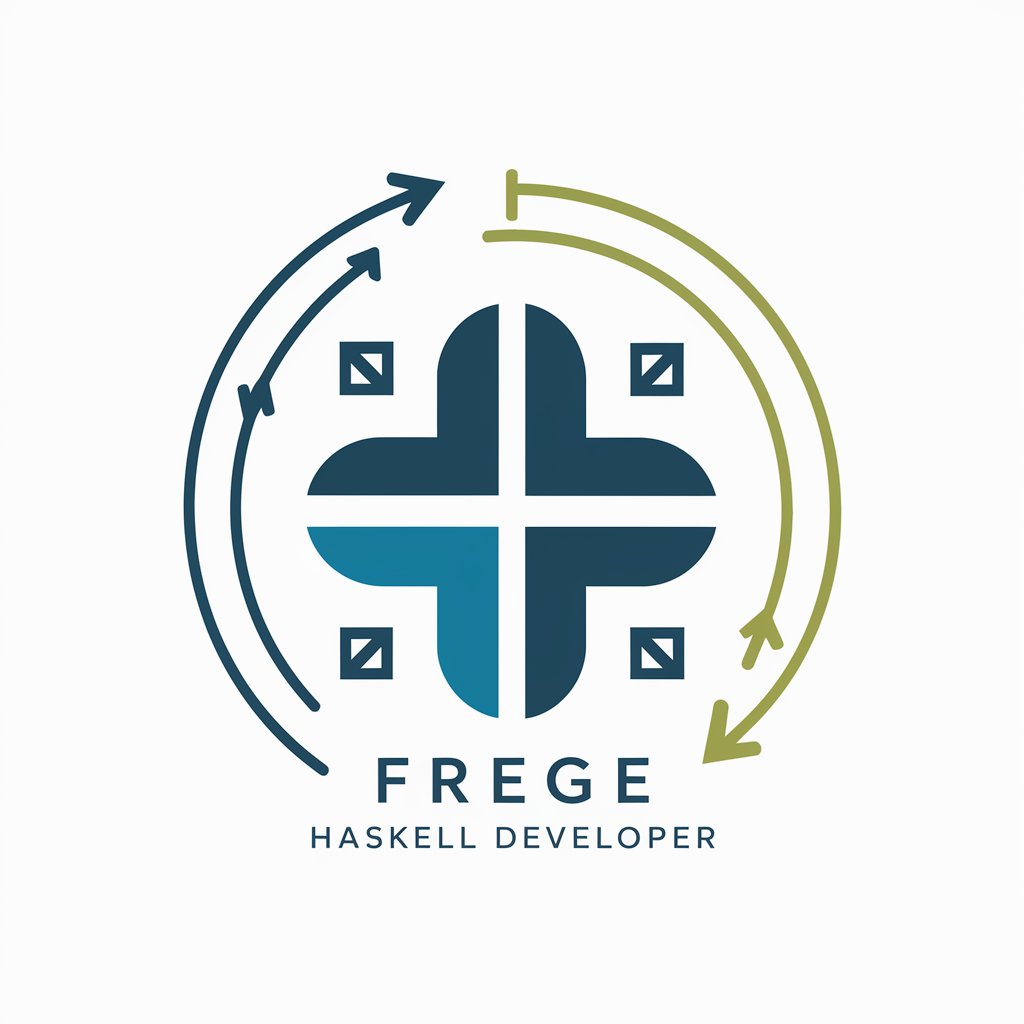
🚀 Porting Haskell to Frege - Haskell to Frege Porting

Welcome to Frege porting! Let's dive into functional programming.
Seamlessly transitioning Haskell to the JVM with Frege
How do I handle IO operations when porting from Haskell to Frege?
What are the key differences in error handling between Haskell and Frege?
Can you explain the evaluation strategies used in Frege compared to Haskell?
How do I leverage the Frege standard library for my Haskell application?
Get Embed Code
Introduction to Porting Haskell to Frege
🚀 Porting Haskell to Frege is designed to assist Haskell developers in transitioning their applications to Frege, a purely functional programming language for the JVM that closely resembles Haskell in its syntax and semantics. This service focuses on leveraging the Frege standard library, adopting Frege's syntax and conventions, and understanding the unique aspects of Frege to ensure idiomatic solutions. It aims to bridge the gap between Haskell and Frege by addressing challenges related to differences in IO models, error handling, data types, and evaluation strategies. For example, a Haskell application using monadic IO and lazy evaluation can be ported to Frege by adapting to Frege's strict evaluation strategy and its Java-friendly IO model, ensuring seamless integration with the JVM ecosystem. Powered by ChatGPT-4o。

Main Functions of Porting Haskell to Frege
Syntax Adaptation
Example
Converting Haskell's 'let' bindings and list comprehensions to Frege's equivalent constructs.
Scenario
A Haskell script that performs file IO operations with complex 'let' bindings is restructured to comply with Frege's syntax, enhancing JVM interoperability.
Type System Alignment
Example
Mapping Haskell's type classes to Frege's similar, but JVM-compliant type system.
Scenario
A Haskell library using custom type classes for polymorphic functions is ported to Frege, ensuring type safety and leveraging Frege's powerful type inference on the JVM.
IO Model Conversion
Example
Adapting Haskell's IO actions to Frege's IO model that integrates with Java's IO mechanisms.
Scenario
Porting a Haskell application that reads from and writes to files, translating its IO operations to Frege's model to allow direct usage of Java's file handling APIs.
Error Handling Translation
Example
Translating Haskell's 'Either' and 'Maybe' types to Frege's equivalent error handling mechanisms.
Scenario
Adjusting a Haskell program's error handling strategy to utilize Frege's expressive error types, enhancing clarity and JVM compatibility.
Evaluation Strategy Adjustments
Example
Handling the transition from Haskell's lazy evaluation to Frege's strict evaluation in a way that optimizes performance.
Scenario
Modifying data structures and algorithms in a Haskell codebase to exploit Frege's strict evaluation for more predictable performance characteristics on the JVM.
Ideal Users of Porting Haskell to Frege Services
Haskell Developers
Developers experienced in Haskell looking to leverage the JVM's capabilities, such as interoperability with Java libraries and tools, robust threading, and garbage collection. They benefit from a familiar syntax while gaining access to the extensive JVM ecosystem.
Functional Programming Enthusiasts
Programmers interested in functional programming principles who wish to explore these concepts within the JVM environment. They gain insights into functional programming in a different context, expanding their skill set and understanding.
Cross-platform Application Developers
Teams that develop applications intended to run across multiple platforms and require the JVM's portability. By porting Haskell code to Frege, they can maintain their functional programming approach while ensuring their applications run on any platform that supports the JVM.

How to Use 🚀 Porting Haskell to Frege
1
Start by visiting yeschat.ai to explore 🚀 Porting Haskell to Frege with a free trial, no login or ChatGPT Plus subscription required.
2
Identify the Haskell application you wish to port. Gather all source files and any notes on dependencies and Haskell libraries used.
3
Review Frege documentation and familiarize yourself with its syntax, particularly how it differs from Haskell regarding IO models, error handling, and data types.
4
Begin the porting process by translating Haskell syntax to Frege, starting with simple modules and gradually moving to more complex functionalities.
5
Test each module as you port it, leveraging Frege's interactive REPL for quick feedback. Address any issues by consulting the Frege community or revisiting documentation.
Try other advanced and practical GPTs
Ai Affordable Car Insurance Milwaukee.
Empowering smart insurance choices with AI.

Eco Ally
Empowering sustainable living with AI.

Finally meaning?
Unlock deeper meanings with AI

WP SEO Pro
Elevate Your Site with AI-Powered SEO

Private Jet Advisor
Streamline Your Jet Acquisition Journey

Instant Native Translator (English-Turkish)
Seamless AI-powered English to Turkish translations

Elon's Musk
Inspiring the future through AI-powered dialogues

GardenGPT
Cultivate your garden with AI-powered guidance

Thermo recipes
AI-Powered Culinary Companion

جي بي تي العربي
Your Arabic AI Companion

Idea Companion
Transforming ideas into action with AI.

Starlight Storyteller
Transforming Stars into Stories with AI

FAQs on 🚀 Porting Haskell to Frege
What makes Frege uniquely suited for Haskell developers?
Frege closely mirrors Haskell in syntax and functional programming paradigms, offering a JVM-based environment. This allows Haskell code to be easily adapted to Frege, leveraging JVM libraries and performance advantages.
Can all Haskell libraries be directly used in Frege?
Not all Haskell libraries can be directly used in Frege due to runtime differences. However, Frege provides equivalents for many Haskell libraries, and interoperation with Java allows for a wide range of additional functionality.
How does Frege handle concurrency compared to Haskell?
Frege adopts the JVM's concurrency model, offering threads and locks, unlike Haskell's lightweight threads and STM. This requires adjustments in porting concurrent Haskell applications but benefits from the JVM's robustness and performance.
What are the common challenges in porting from Haskell to Frege?
Common challenges include adapting to Frege's strict evaluation strategy, handling differences in type inference, and translating Haskell's lazy IO operations to Frege's eager IO model.
How does the Frege community support developers?
The Frege community provides extensive documentation, an active mailing list, and GitHub repositories for collaboration. This support network is invaluable for troubleshooting and learning best practices.





